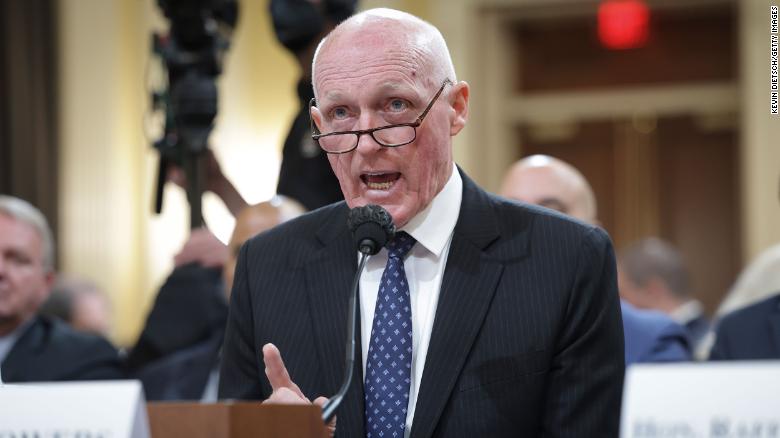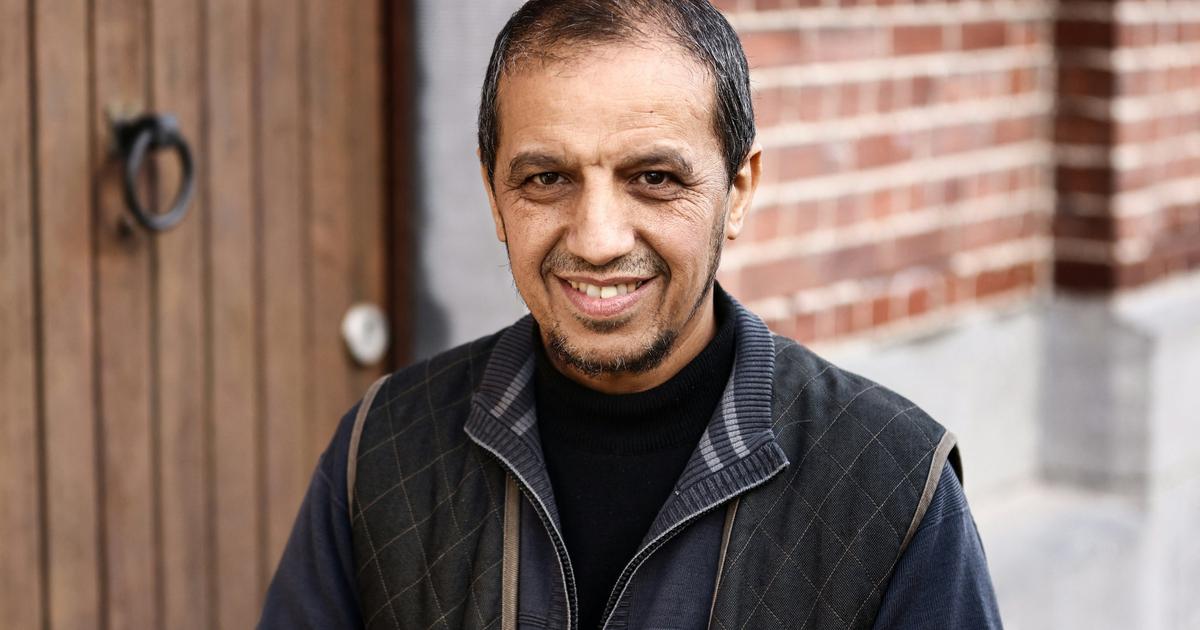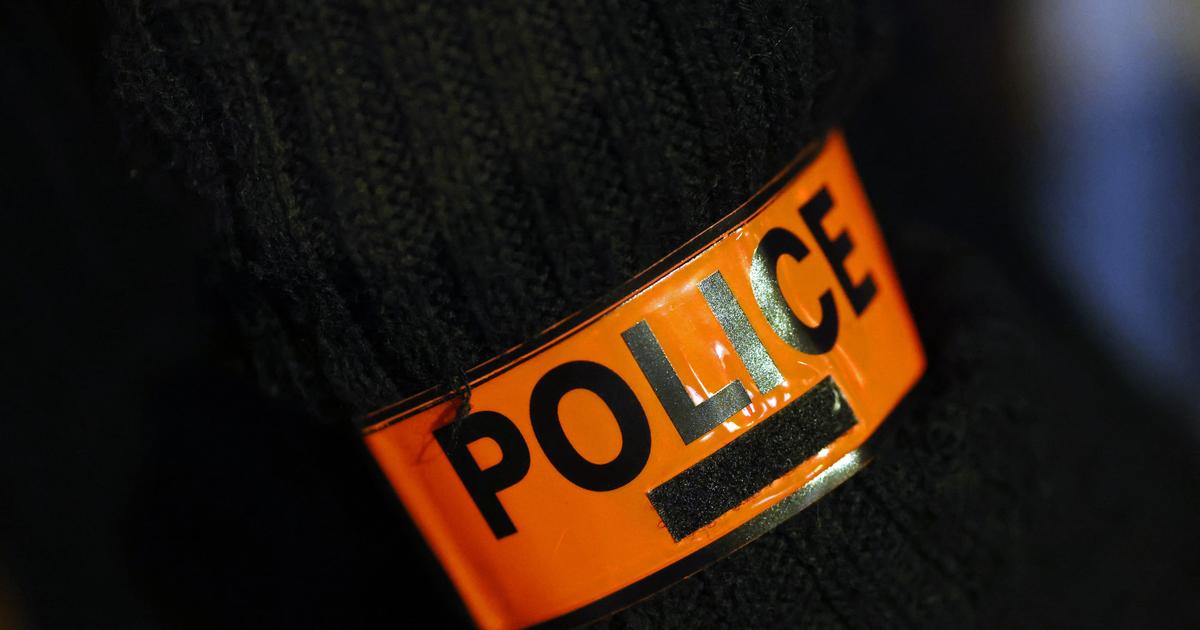January 6 hearings: this is how the conservative media reacted 3:03
(CNN) --
The latest hearing before the House select committee investigating the Jan. 6 insurrection revealed new details Tuesday about how former President Donald Trump pressured state officials to help him nullify the presidential election. of 2020.
The panel featured testimony from three Republican officials who were on the receiving end of Trump's actions after the election: Georgia Secretary of State Brad Raffensperger, his deputy Gabe Sterling and the speaker of the Arizona House of Representatives. Rusty Bowers.
As in previous hearings, these officials testified about their unwillingness to engage in legally dubious schemes that would undermine the election, including efforts to subvert the Electoral College with bogus pro-Trump electors.
Here are the key points from Tuesday's hearing:
GOP Witnesses Link Trump Directly to Fake Voters
Multiple witnesses told the commission that Trump was personally involved in the effort to submit phony voter lists in key battleground states, a key part of the larger effort to overturn Biden's legitimate electoral victory.
CNN previously reported on the role key Trump allies, including his former lawyer Rudy Giuliani, played in overseeing the effort, but witnesses on Tuesday revealed new details about how the former president himself was not only aware of the campaign, but he apparently endorsed her.
advertising
Ronna McDaniel, chairwoman of the Republican National Committee, said she got a call from Trump and conservative attorney John Eastman after the election to help rally voters.
Trump Campaign Officials Led by Rudy Giuliani Oversaw the Fake Voter Scheme in Seven States
"In this effort, what did the president say when he called you?" a commission investigator asked McDaniel, according to video of his testimony played during the hearing.
"Essentially, he put the call through to Mr. Eastman, who then proceeded to talk about the importance of the Committee helping the campaign rally these contingent voters in the event that any of the ongoing legal challenges changed the outcome of any date," replied McDaniel.
"I think we're more like helping them reach out and bring them together, but ... my understanding is that the campaign took the lead and we just help them in that role," he added.
Bowers also told the commission that she received a call from Trump and Giuliani during which they urged her to follow a plan to turn out illegitimate voters from the state to Trump.
"I told them I didn't want to be used as a pawn," Bowers said Tuesday, recalling what she told Giuliani and Trump on the Nov. 22 call.
The speaker of the Arizona House of Representatives also testified that Giuliani acknowledged that what he was proposing had never been done before, but kept pressing him anyway.
That also came up in other conversations with Eastman and others, Bowers said.
Commission reveals new details about how congressional Republicans aided Trump's efforts to nullify the election
Tuesday's hearing presented new details about two congressional Republicans who played a role in Trump's efforts to try to overturn his 2020 election loss.
The first was Republican Rep. Andy Biggs of Arizona, who called Bowers on the morning of January 6, 2021, asking him to support decertifying his state's voters for Biden.
"I said I wouldn't do it," Bowers said Tuesday.
Former Trump Administration Officials Reject His Claims About Election Fraud
The second occurred several hours later, minutes before then-Vice President Mike Pence began the joint session of Congress to certify electoral votes.
According to text messages obtained by the commission, an aide to Republican Sen. Ron Johnson of Wisconsin asked a Pence adviser how Johnson could hand-deliver fake lists of Trump voters from Michigan and Wisconsin, which had not been sent to him. to the National Archives.
Pence's aide responded that Johnson "shouldn't give him that."
Both the effort to decertify Biden voters and to present fake Trump voters were part of the Trump team's plan to stop Congress from certifying the election on January 6.
The role played by Trump allies in Congress has been of interest to the committee, which has subpoenaed five members of the House GOP, including Biggs and House Minority Leader Kevin McCarthy.
House Republicans have not complied with the subpoenas and have denounced the panel's investigation.
The committee's chairman, Democratic Rep. Bennie Thompson of Mississippi, told CNN's Manu Raju during a break in Tuesday's hearing that the committee "still" hasn't contacted Johnson amid discussions. revelations of his involvement in the false electors plot.
"The commission hasn't made a decision" on whether to call him to testify, Thompson said.
Witnesses Describe How Trump's Lies Had Serious Consequences... Even Threats
The commission's hearing underscored how election lies spread by Trump and his team spiraled into multiple disasters for state officials forced to deal with them.
All the witnesses who appeared at Tuesday's hearing spoke of the serious repercussions they faced as a result of the false claims that Trump and his team presented.
That included pressure to help the effort to nullify the election, repeated attempts to try to discredit the claims, and threats they faced from Trump supporters for refusing to follow his efforts.
"No matter how many times senior Justice Department officials, including his own Attorney General, told the President these allegations were untrue, President Trump continued to promote these lies and pressure state officials to accept them," committee member Rep. Adam Schiff, D-Calif., said during Tuesday's hearing.
ANALYSIS |
Mike Pence says that no president in his life has lied as much as Joe Biden.
Ahem...
The stories were similar in many ways to the pressure campaign Pence faced from Trump and his supporters before Jan. 6, and the threats he faced from rioters on Capitol Hill.
Bowers gave emotional testimony about the "disturbing" protests outside his home.
Bowers teared up as he spoke of the impact the protests at this house had on his wife and his daughter, who was home seriously ill at the time and "disturbed by what was happening outside."
And he read passages from his personal diary about friends who had turned against him.
Bowers also described how Trump and his team did not take no for an answer and continued to pressure him to support the decertification of the state's voters until the morning of January 6.
Raffensperger described the attacks his wife faced after the election, which he said he suspected was an attempt to pressure him to resign.
Schiff cited Raffensperger's book, in which he wrote: "I felt then and still believe today that it was a threat."
Trump supported Republican Rep. Jody Hice of Georgia challenging Raffensperger in the Republican primary as part of his campaign to oust Republicans who opposed his lies about the election.
But Raffensperger won her primary in May.
Republican officials take the lead in testifying against Trump
Once again, the Democrat-led Jan. 6 commission turned to Republican officials to make its case against Trump.
In fact, most of the eyewitnesses so far have been Republicans.
Tuesday's hearing featured in-person testimony from three conservative Republicans who supported Trump in 2020. The commission also played clips of statements from two other GOP officials: Michigan State Senate Majority Leader Mike Shirkey, and Pennsylvania House Speaker Bryan Cutler.
All of them offered testimony against Trump, describing how he repeatedly tried to twist their arms and cajole them into overturning the results.
They also described the threats and pressure they faced from Trump supporters, who believed his election lies and protested outside his homes and offices, bombarding them with calls and texts.
One of the GOP's main complaints about the commission is that it is packed with Democrats.
And it is, largely because the Republican leadership refused to participate last summer.
But so far, the most damaging testimony has come from Republicans and members of Trump's inner circle.
Rusty Bowers, Speaker of the Arizona House of Representatives, testifies during Tuesday's hearing into the Jan. 6 investigation at the Cannon House Office Building in Washington.
Arizona's top Republican rebuts Trump live
Bowers said under oath Tuesday that Trump lied about him in a statement released shortly before the hearing began, in which Trump claimed Bowers told him in November 2020 that he believed the election was rigged.
In the statement, Trump attacked Bowers, describing a call they had after the election, saying "during the conversation, he told me the election was rigged and that I won Arizona."
Trump added: "Bowers should pray that there is no recording of the conversation."
ANALYSIS |
The surprising evolution of William Barr, from loyalist to Trump nemesis
Under questioning from Schiff, Bowers confirmed that "he did have a conversation with the president, but he certainly didn't say that."
"There are parts that are true, but there are parts that are not," Bowers said of Trump's statement.
"...Anywhere, anytime he said that I said the election was rigged...that wouldn't be true."
The comments were a real-time rebuttal to the former president.
While Trump can say whatever he wants in a press release, Bowers is required to testify truthfully before Congress, and could be prosecuted for lying under oath.
The back and forth harks back to Trump's infamous conversations with former FBI Director James Comey in 2017, in which Trump lied about what they discussed and raised the specter of the "recordings."
Like Bowers, Comey testified before Congress, under penalty of perjury, about the conversations with Trump.
Schiff re-dissects troubling Trump calls
It was intriguing to watch Schiff dissect Trump's troubling phone calls with Georgia election officials, in which he tried to convince him to ignore Biden's victory and interfere in the vote count so he could stay in power.
These exchanges drew attention because this is not the first time Schiff has highlighted Trump's misdeeds in a phone call.
Remember: Schiff was the lead investigator in Trump's first impeachment trial, which revolved around a 2019 call with Ukraine President Volodymyr Zelensky, in which Trump pressured Zelensky to publicly announce that his country was investigating Biden for corruption.
Zelensky's reaction to Trump's 2019 comment draws attention again
In that situation, the White House released a transcript of the call, but there was no audio tape.
This time, the Jan. 6 commission played recordings of Trump's transition-era conversations with Raffnesperger and Frances Watson, a senior investigator in the Georgia secretary of state's office.
Trump's attempts to nullify the 2020 election, that's precisely what Schiff warned about during Trump's first impeachment trial, in which he was acquitted.
That trial was all about Trump's efforts to undermine the integrity of the election by soliciting foreign interference.
These January 6 hearings seek to expose Trump's efforts to enlist his countrymen in his campaign to subvert the results.
Emotional Testimony Spotlights Victims of Trump Misinformation
Later in the day, the commission heard testimony from Wandrea "Shaye" Moss and her mother Ruby Freeman, who were poll workers in Atlanta during the 2020 election. Trump, Giuliani and other GOP figures put both of them on the center of his insane lies about massive voter fraud in Georgia.
Coverage of the Trump presidency has often focused on his words and lies.
But the emotional and deeply personal testimony of Moss and Freeman flipped the script, showing the human cost of Trump's lies.
The women described in devastating terms how Trump's lies essentially destroyed their lives.
January 6 panel focuses on Trump's guilt as hearings begin
Moss said he felt "powerless," gained 60 pounds and stopped giving out his business card because "I don't want anyone to know my name."
His mother said she gets "nervous when I have to order food" because someone who believes Trump's lies might recognize his name.
She said she felt "homeless" while she lived in hiding for two months, after the FBI told her she was not safe in her house.
"I have lost my sense of security, all because of a group of people, starting with (Trump) and his ally Rudy Giuliani, who decided to scapegoat me, and my daughter, Shaye, to push lies about how the election was stolen," Freeman said in a videotaped statement, an excerpt of which was played during Tuesday's hearing.
Assault on the CapitolHearing









